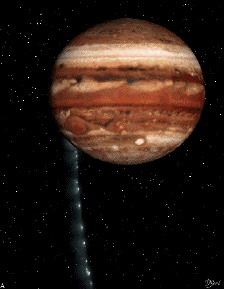Optical illusions show us that it is easy to fool our senses - the blue lines in the figure above are straight! (Check it with a straightedge.)
BHS -> Mr. Stanbrough -> Physics -> About Science -> this page
Science begins with observations of nature. Thus Galileo began his study of falling bodies not by making general statements, but by performing experiments. Tycho Brahe began to make detailed nightly observations of the heavens in order to figure out how the universe was constructed.
Anything you see, hear, smell, taste, or touch is an observation. An observation may be quite casual - "You are wearing a blue shirt", or it may be quite formal and planned. Formal, carefully planned and executed experiments are designed to make observations. (Actually, experimental data are observations. Scientists also draw conclusions from experiments.)
|
|
|
Optical illusions show us that it is easy to fool our senses - the blue lines in the figure above are straight! (Check it with a straightedge.) |
How do you gain confidence that your observation is correct? If a scientist believes that her observation is correct, she will tell others about it. If other scientists can make the same observation, we can be more confident that an observation is correct. (If your friend sees little green men in the backyard too, then maybe you haven't lost your mind...)
This is why scientific observations must be repeatable. Otherwise, there is no way to tell if the observation is correct. An observation that cannot be repeated might very well be true - but how can we tell? Such observations are called anecdotal evidence. Reports of UFO sightings and miracle cures of disease fall into the category of anecdotal evidence.
 |
|
|
If scientific observations must be repeatable, was the impact of Comet Shoemaker-Levy with Jupiter a scientific observation, since it doesn't seem to be repeatable?
Well, first remember the "disclaimer" that began these notes! Although the comet impact with Jupiter can't be repeated at will, it was observed by just about every astronomer on Earth! There was an enormous amount of data taken during the impacts, so scientists can compare and study the observations made by various instruments. The methods used to collect data, and the data themselves, are a matter of record. In that sense, the observations were scientific.
Observations of unusual events are accepted as scientific observations all the time - the appearance of a supernova, for instance, might be first observed by just one scientist. This scientist then alerts others, who can then look for themselves. When a scientist says that observations must be repeatable, they mean that the observations can't be done in secret - you don't have to take someone's word that something happened, and that the means of collecting the data must be open and reliable - not an "it only works if you believe" kind of thing.
The importance of observation (experiment) in science would be difficult to exaggerate. Every statement or idea in science must be checked and rechecked by observations of nature, and if the idea conflicts with the observation, the idea must yield and be modified or cast aside. No appeal to "common sense," authority, or anything else can save an idea that conflicts with observation.